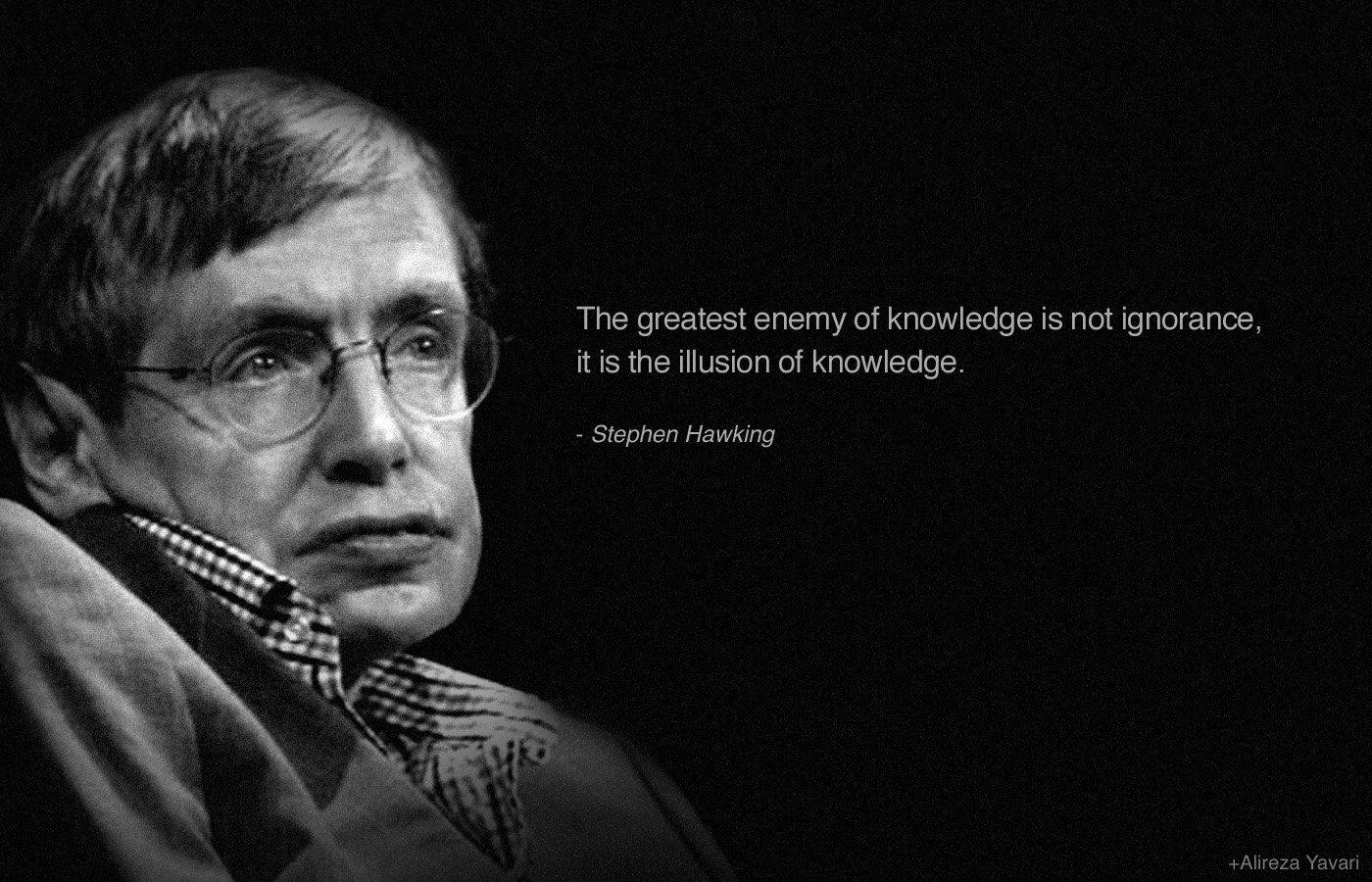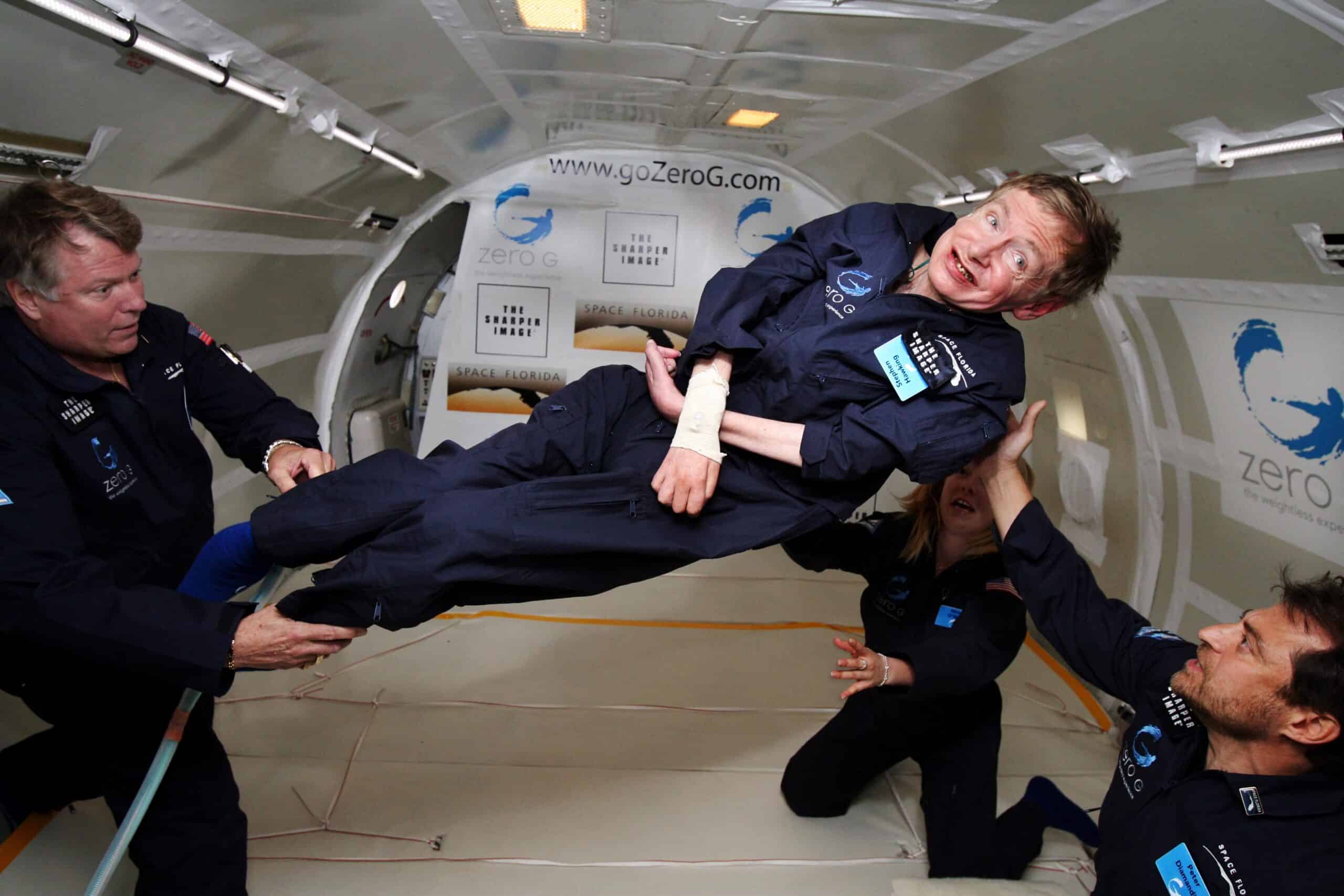Stephen Hawking's IQ has been a topic of fascination and admiration for many. Renowned for his groundbreaking work in theoretical physics, Hawking's intellectual prowess extended beyond academia, captivating the world with his extraordinary insights into the universe. While his IQ score remains a subject of speculation, what truly set him apart was his ability to communicate complex scientific ideas to the masses, making science accessible and intriguing for everyone.
Despite the physical challenges he faced due to amyotrophic lateral sclerosis (ALS), Stephen Hawking's IQ and intellectual contributions remained undeterred. His resilience and determination to continue his research, even when confined to a wheelchair and using a speech-generating device, are testaments to his extraordinary mind and spirit. Hawking's life and work continue to inspire millions, reminding us of the power of human intellect and perseverance.
Stephen Hawking's IQ was not just a measure of his intelligence but a reflection of his curiosity and passion for unraveling the mysteries of the universe. His legacy is not only in the scientific theories he developed but also in the way he inspired a generation of thinkers, dreamers, and future scientists. As we delve deeper into his life, work, and the impact of his intellectual achievements, we gain a greater appreciation for the brilliance of this remarkable individual.
Table of Contents
- Biography of Stephen Hawking
- Early Life and Education
- Academic Career and Achievements
- What were Stephen Hawking's major breakthroughs?
- Hawking's Contributions to Theoretical Physics
- Understanding Stephen Hawking's IQ: Myths and Facts
- Personal Life and Challenges
- What is Stephen Hawking's legacy?
- Books and Publications by Stephen Hawking
- How has Stephen Hawking influenced modern science?
- Stephen Hawking in Pop Culture
- Awards and Honors Received by Stephen Hawking
- Hawking's Philosophical Views and Beliefs
- What were the final years of Stephen Hawking's life like?
- The Enduring Impact of Stephen Hawking's Work
Biography of Stephen Hawking
Stephen William Hawking was born on January 8, 1942, in Oxford, England. He was one of the most brilliant theoretical physicists of the 20th and 21st centuries. Hawking's work on black holes and cosmology revolutionized our understanding of the universe. Despite being diagnosed with a rare form of motor neurone disease, he defied the odds to become an influential scientist and author.
Personal Details and Bio Data
| Full Name | Stephen William Hawking |
|---|---|
| Birth Date | January 8, 1942 |
| Birth Place | Oxford, England |
| Field | Theoretical Physics, Cosmology |
| Education | University of Oxford, University of Cambridge |
| Notable Works | A Brief History of Time, Hawking Radiation |
| Spouse | Jane Wilde (m. 1965–1995), Elaine Mason (m. 1995–2006) |
| Children | Robert, Lucy, Timothy |
| Died | March 14, 2018 |
Early Life and Education
Stephen Hawking was born into a family of thinkers. His parents, Frank and Isobel Hawking, were both Oxford-educated, which set the foundation for Stephen's intellectual journey. Growing up in St. Albans, he displayed an early interest in science and the universe, often gazing at the stars and pondering their mysteries.
Hawking attended St. Albans School, where he was known for his curious mind and unconventional approach to learning. He later enrolled at University College, Oxford, to study physics. Although he found the curriculum uninspiring, he graduated with honors and went on to pursue a Ph.D. in cosmology at the University of Cambridge.
Academic Career and Achievements
Stephen Hawking's academic career was marked by numerous achievements and contributions to the field of theoretical physics. After completing his doctorate, he became a research fellow at Gonville and Caius College, Cambridge. His work on black holes and the nature of the universe garnered significant attention and respect in the scientific community.
In 1979, Hawking was appointed the Lucasian Professor of Mathematics at Cambridge, a prestigious position once held by Sir Isaac Newton. During his tenure, he made groundbreaking discoveries, including the theory of Hawking radiation, which proposed that black holes emit radiation and can eventually evaporate.
What were Stephen Hawking's major breakthroughs?
Stephen Hawking's major breakthroughs transformed our understanding of the cosmos. His work on black holes, particularly the discovery of Hawking radiation, challenged existing theories and opened new avenues for research. This groundbreaking theory suggested that black holes are not completely black but emit radiation, eventually losing mass and disappearing.
Hawking also contributed to the development of the theory of cosmological inflation, which posits that the universe underwent rapid expansion after the Big Bang. His research provided insights into the origins of the universe and the fundamental laws governing it, earning him recognition as one of the most influential scientists of his time.
Hawking's Contributions to Theoretical Physics
Stephen Hawking's contributions to theoretical physics are vast and varied. His work on black holes and the nature of space-time revolutionized our understanding of the universe. Hawking's research on singularities, the points at which the laws of physics break down, provided new insights into the nature of gravity and the behavior of the universe at its most extreme points.
Hawking's collaboration with mathematician Roger Penrose led to the formulation of the Penrose-Hawking theorems, which demonstrated that singularities are an inevitable consequence of Einstein's theory of general relativity. This groundbreaking work laid the foundation for further research into the nature of black holes and the origins of the universe.
Understanding Stephen Hawking's IQ: Myths and Facts
Stephen Hawking's IQ has often been a subject of speculation. While there is no official record of his IQ score, it is widely assumed to be exceptionally high, given his remarkable contributions to science. However, Hawking himself downplayed the importance of IQ, emphasizing that curiosity and hard work are the true drivers of success in scientific endeavors.
In interviews, Hawking expressed that intelligence is not solely measured by an IQ score but by one's ability to think critically and solve complex problems. His life and work exemplify this belief, demonstrating that determination and intellectual curiosity can lead to groundbreaking discoveries, regardless of one's IQ.
Personal Life and Challenges
Stephen Hawking's personal life was marked by triumphs and challenges. He married Jane Wilde in 1965, and they had three children together: Robert, Lucy, and Timothy. Despite his physical limitations due to ALS, Hawking continued to pursue his passion for science and family life, often relying on his wit and humor to cope with adversity.
Hawking's marriage to Jane ended in 1995, and he later married Elaine Mason, his former nurse. The couple divorced in 2006. Throughout his life, Hawking faced numerous health challenges but remained committed to his work, inspiring others with his resilience and determination.
What is Stephen Hawking's legacy?
Stephen Hawking's legacy extends far beyond his scientific achievements. He inspired millions with his courage, determination, and ability to communicate complex ideas in an accessible way. His bestselling book, "A Brief History of Time," introduced readers to the wonders of the universe, sparking interest in science and cosmology worldwide.
Hawking's work continues to influence scientists and researchers, driving further exploration of the universe and its mysteries. His legacy is a testament to the power of human intellect and perseverance, inspiring future generations to pursue their dreams and overcome obstacles in the pursuit of knowledge.
Books and Publications by Stephen Hawking
Stephen Hawking was a prolific author, writing numerous books and publications that brought complex scientific concepts to the general public. Some of his most notable works include:
- "A Brief History of Time" (1988)
- "The Universe in a Nutshell" (2001)
- "The Grand Design" (2010)
- "Black Holes and Baby Universes and Other Essays" (1993)
- "My Brief History" (2013)
These books not only showcased Hawking's intellectual prowess but also his ability to engage and inspire readers with his passion for the mysteries of the universe.
How has Stephen Hawking influenced modern science?
Stephen Hawking's influence on modern science is profound and far-reaching. His work on black holes and cosmology has reshaped our understanding of the universe, providing new insights into the fundamental laws of nature. Hawking's theories continue to inspire research and exploration, driving advancements in theoretical physics and cosmology.
Beyond his scientific contributions, Hawking's ability to communicate complex ideas to the public has inspired a new generation of scientists and thinkers. His books and lectures have sparked interest in science and cosmology, encouraging young minds to pursue careers in STEM fields and explore the wonders of the universe.
Stephen Hawking in Pop Culture
Stephen Hawking's impact extended beyond academia into popular culture, where he became a beloved and iconic figure. His appearances on television shows like "Star Trek: The Next Generation," "The Simpsons," and "The Big Bang Theory" showcased his wit and humor, endearing him to audiences worldwide.
Hawking's life and work were also the subject of the 2014 biographical film "The Theory of Everything," which portrayed his early struggles with ALS and his rise to scientific prominence. The film received critical acclaim and brought Hawking's story to a broader audience, further cementing his status as a cultural icon.
Awards and Honors Received by Stephen Hawking
Throughout his illustrious career, Stephen Hawking received numerous awards and honors recognizing his contributions to science. Some of the most notable accolades include:
- Companion of Honour (1989)
- Presidential Medal of Freedom (2009)
- Copley Medal (2006)
- Wolf Prize in Physics (1988)
- Albert Einstein Medal (1979)
These awards reflect the impact of Hawking's work on the scientific community and his enduring legacy as one of the greatest minds of his generation.
Hawking's Philosophical Views and Beliefs
Stephen Hawking's philosophical views and beliefs were shaped by his scientific endeavors and personal experiences. He was an advocate for the pursuit of knowledge and the exploration of the universe's mysteries. Hawking often spoke about the importance of curiosity and the need to question and understand the world around us.
Despite his scientific background, Hawking also pondered the philosophical implications of his work, exploring questions about the nature of existence, the universe, and humanity's place within it. His views on science and philosophy continue to inspire discussions and debates, encouraging others to seek answers to the big questions of life.
What were the final years of Stephen Hawking's life like?
The final years of Stephen Hawking's life were marked by continued scientific exploration and public engagement. Despite his physical limitations, he remained active in research, collaborating with scientists and publishing papers on topics such as black holes and the multiverse.
Hawking also continued to inspire and educate through public lectures and appearances, using his platform to advocate for scientific research and the pursuit of knowledge. His final book, "Brief Answers to the Big Questions," was published posthumously, offering insights into his thoughts on some of the most pressing questions facing humanity.
The Enduring Impact of Stephen Hawking's Work
The enduring impact of Stephen Hawking's work is evident in the continued exploration and research in theoretical physics and cosmology. His contributions to our understanding of black holes and the universe have paved the way for new discoveries and advancements in science.
Hawking's legacy is also reflected in the countless individuals he inspired to pursue careers in science and technology. His ability to communicate complex ideas to the public has left a lasting impression, encouraging future generations to explore the wonders of the universe and seek answers to the mysteries that lie beyond.
You Might Also Like
Juan Soler: A Star's Journey Through Talent And CharismaUnveiling The Truth: Did Aubrey Wyatts' Bullies Go To Jail?
The Enigmatic Appeal Of Sophie Rein Spider-Man Video
Unveiling The Mysteries Of The 1968 Chinese Zodiac: A Journey Through Time
Exploring The Phenomenon Of Sophie Rain Spiderman Video On YouTube
Article Recommendations

